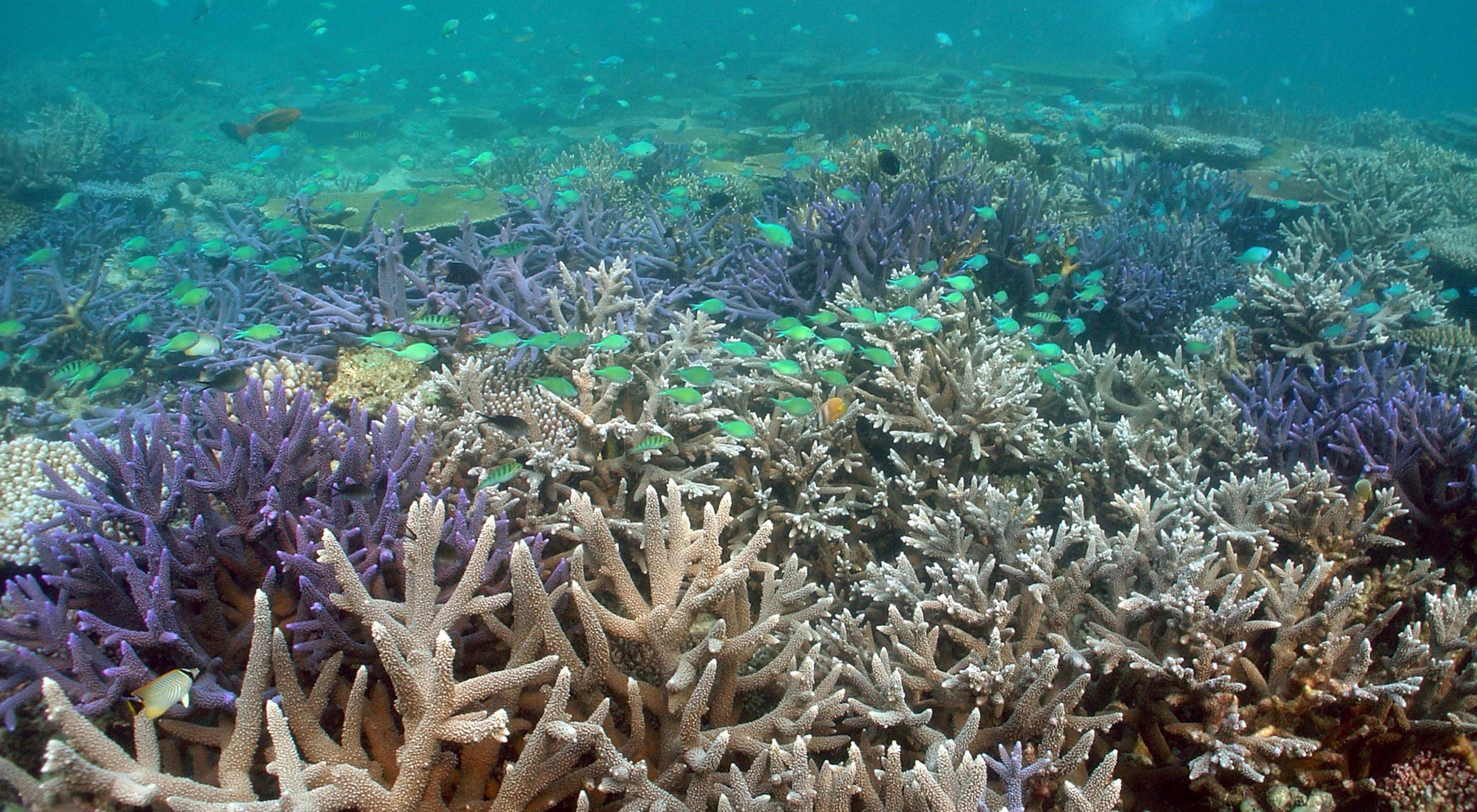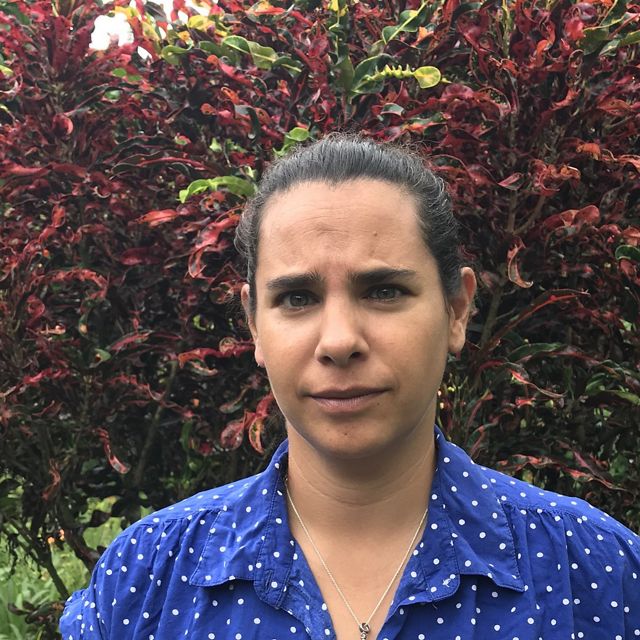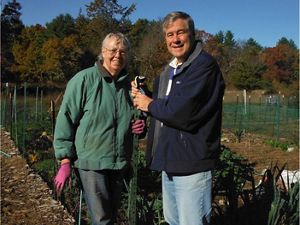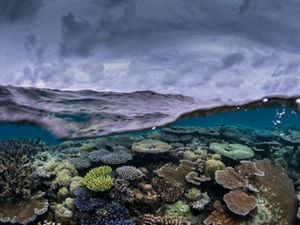It’s easy to understand the allure of coral reefs. Below the surface of turquoise water, tropical fish dart among corals of different colors, textures and shapes.
But coral reefs are much more than mesmerizing natural wonders. Healthy reefs reduce wave energy by an average of 97%, protecting coastal areas from erosion, flooding and storms. They act as nurseries for fish and other species, supporting an estimated one quarter of all marine life.
Unfortunately, half of the world’s corals have been lost over the last three decades. “Because of rising ocean temperatures, coral reefs could be one of the first major ecosystems to disappear due to climate change,” says Dr. Lizzie Mcleod, who leads The Nature Conservancy’s global reef work. “But we aren’t giving up—because in addition to their important role in nature, over a billion people rely on reefs for food and their livelihoods.”

A team prepares coral nubbins transplanting to a coral nursery.
Science leading the way to hope and action
Researchers are racing to find solutions. Recent analysis by scientists with the Woods Hole Oceanographic Institution (WHOI) and Stanford University revealed that in some areas, corals are surviving heat waves, a characteristic that has earned them the moniker “super reefs.” Computer modeling helps to identify areas that are likely to harbor these reefs. Then coral samples are collected from those sites and analyzed for their ability to live in warmer water. And now, TNC is collaborating with WHOI and Stanford to rapidly apply that process to priority coral reef conservation projects around the world. “Through this unique partnership, we are using what we learn about heat-resistant reefs to inform marine protection and restoration efforts around the world, including Palau,” says Lizzie.
Protecting Palau’s reefs
Located in the western Pacific Ocean, Palau is a Micronesian nation made up of hundreds of coral and volcanic islands. TNC has become a trusted partner in the country, having worked there for more than 30 years alongside communities and together with local organizations and governments. For example, when fishermen in the northern reefs of Palau reported catching smaller and fewer fish a few years ago, the northern reef community asked TNC to help establish a cooperative that is collaboratively managing the fisheries to recover fish stocks. When local data indicated the potential for super reefs in the same area, researchers committed to expanding the data collection efforts.
“Our goal is to identify areas of the reef that are more climate resilient, and then grow corals from those areas to use in restoration projects,” says Liz Terk, TNC’s director of conservation in Micronesia. “This effort will also help Palau prioritize areas for protection so that they can achieve the goals they set out in the Micronesia Challenge.” TNC was instrumental in supporting the launch of the challenge, a commitment among five governments that aims to effectively manage 50% of the region’s marine resources and 30% of its terrestrial resources by 2030.
For Liz, who moved to Micronesia from the United States 15 years ago, this work is personal. “This is my home now. I’m raising my children here. I want them to have a meaningful connection to these natural resources—and I want that for every person who lives here. This kind of locally driven conservation, informed by cutting-edge science, can help us make sure coral reefs are around for future generations.”






